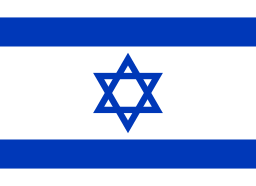
מוצא Coordinates: 31° 47' 38.11" N 35° 10' 6.45" E 
|
||

מוצא Coordinates: 31° 47' 38.11" N 35° 10' 6.45" E 
|
||
| Home | Maps | Community | The Fallen | Links | Census |
Motza1 (Motsa) is a village located in the Judean Hills just west of Jerusalem. Modern Motza was founded in 1854 on land purchased by Shaul Yehuda from the Arab village of Qalunya (Colonia); it was the first modern Jewish farm established outside the walls of the Old City. Motza is believed to be on the site of the Benjamite city of that name mentioned in Joshua 18:26.
Initially, the land was settled by four families, one family of which established a tile factory. Seventeen years later, in 1871, Yehoshua Yellin uncovered a Byzantine subterranean hall while plowing his fields. Yellin took advantage of his find by converting the hall into a traveller's inn for pilgrims heading to Jerusalem. In the 1920's a sanatorium, named Arza (cedar), opened in Motza. The Broza family created a highly productive orchard on the farmland. Motza was also the site of the Teperberg Winery (Efrat).
Theodor Herzl passed through Motza in 1898 while on a visit to Palestine. While in Motza, Herzl planted a cypress tree in the area. After his death, the site became the destination of Zionist youth who planted additional trees. During World War I, Herzl's tree was cut down by the Turks who were "harvesting" forests for needed firewood and supplies.
The year 1929 was the year of the Palestine Riots2. The village of Motza did not escape unscathed. Residents of the nearby Arab village of Qalunya attacked the house belonging to the Maklef family, killing the parents, three children, and two guests; three other children escaped injury, one of whom, Mordechai, subsequently became Chief of Staff of the Israeli Army. As a result of the riots, Jews abandoned Motza for a year.
Excavations in Motza in 2012 led to the discovery of the Tel Motza temple3,4, dated to the Kingdom of Judah in the mid-Eighth Century BCE. Motza is thought to be the site of the biblical Mozah mentioned in Joshua 18:26. Ritual objects that were found at the excavation site consisted of ceramic figurines of men and horses. Also uncovered were animal bones, all of which belonged to kosher animals. Remains of a Neolithic settlement (ca. 6000 BCE), a settlement from the First temple period, and a number of wheat granaries were also excavated. It is also thought that Motza may be the site of the town of Emmaus5 mentioned in the Gospel of Luke.
|
Please contact Leah Haber Gedalia with your additions, questions, corrections, or comments! webmaster: richard L. baum |
|
This page is hosted at no cost to the public by JewishGen, Inc., a non-profit corporation. If it has been useful to you, or if you are moved by the effort to preserve the memory of our lost communities, your JewishGen-erosity would be deeply appreciated. |
|
KehilaLinks Home |
JewishGen Home
|
Created: 25 Feb 2018
Last Modified: 02-27-2018
Copyright © 2018 Leah Gedalia
All Rights Reserved.